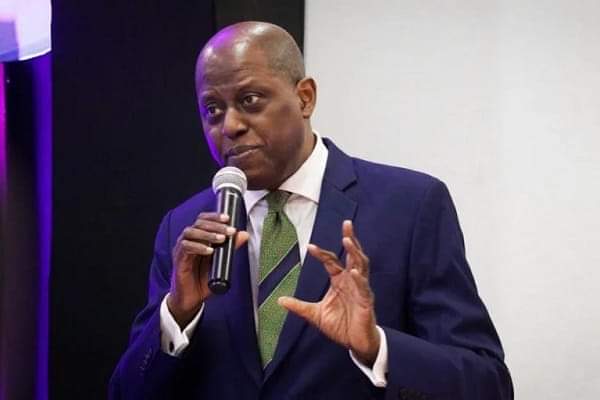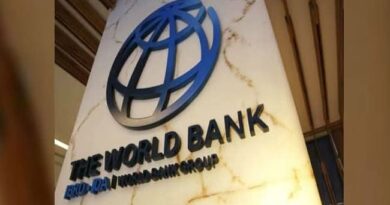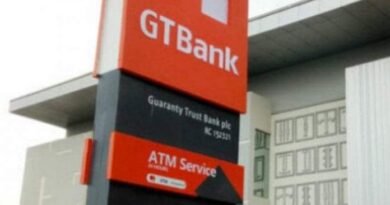Emefiele new naira design is responsible for current naira scarcity so says new CBN Gov. Cardoso
The governor of Central Bank of Nigeria (CBN), Yemi Cardoso, has admitted a critical flaw in the recent naira redesign policy, attributing the ongoing cash scarcity to its “bad implementation” of the policy.
He made this known on Wednesday, December 13, during the launch of the World Bank Nigeria Development Update.
Cardoso said the “glaring defects” in various CBN policies and announced a comprehensive review initiative.
He said: “We are taking a thorough look at all our policies implemented over time,” he stated. This review, he explained, aims to produce “an elegant document” outlining clear rules and procedures for navigating the Nigerian money market.
Addressing the cash crunch plaguing Nigerians, Cardoso identified the poorly executed naira redesign as the primary culprit.
He said: “The apprehension surrounding the policy’s end date, well before the third quarter, triggered widespread hoarding,” he admitted. Many feared the old notes would lose legal tender status, prompting them to hold onto their cash.”
However, Cardoso offered a glimmer of hope, citing the Supreme Court’s recent ruling upholding the validity of the old notes beyond the initial deadline. This, he noted, should help alleviate apprehensions and incentivize individuals to release their hoarded cash into circulation.
On the current naira scarcity, Cardoso said: “unfortunately, the history of that lies with the naira redesign policy and coming to the end of the year, way before the third quarter, there was a lot of apprehension with respect to where this was all going to end; and whether the old currency would no longer be good for legal tender and many started hoardings. This is really what happened. Happily, Supreme Court has decided that the currency will be valid post-end of the year.”
In a related development, the CBN disclosed that there is N3.4 trillion cash in circulation in the country.
Acting Director Corporate Communications of the CBN Mrs Hakama Sidi-Ali made this disclosure in a statement issued in Abuja yesterday.
According to Sidi-Ali, “there is indeed an increase in currency in circulation. From N1 trillion in February 2023, we have seen a rise to over N3.4 trillion as of December 11, 2023. This demonstrates that enough cash is available, but unfortunately, it’s not circulating due to apprehension among some individuals.”
Acknowledging the challenges Nigerians have faced with previous and current cash shortages, Sidi-Ali emphasized the CBN’s commitment to addressing the issue. “We empathize with the recent and past experiences of Nigerians. The CBN assures everyone that we have adequate cash to meet daily transaction needs, even during the upcoming festive season” she stated.
Speaking to the current cash crunch Sidi-Ali attributed the current situation to “the hoarding of the Naira by some persons due to challenges experienced during the Naira redesign project”.
She noted that “the CBN was monitoring the situation and had released sufficient cash to its branches across the country for onward distribution to Deposit Money Banks (DMBs)”.
Ali urged Nigerians to exercise patience while the CBN implements measures to ensure wider cash availability. This includes ongoing efforts to improve cash distribution channels and address logistical challenges.
The CBN’s response aims to quell anxieties about potential cash shortages during the busy holiday period.
However, Point of Sale (PoS) operators in Abuja have devised a method of sourcing for cash. They now go to the markets tobuy cash from traders while they transfer the agreed sum into the traders bank accounts. Some PoS operators are warming up to transfer any additional cost they may incur from the new approach to cash to their clients.
Other measures being taken by the CBN to combat hoarding and improve cash distribution include the discontinuation of processing fees charges on deposits to encourage the public to save the cash in their possession.
The CBN is now caught in a delicate balance between addressing currency security concerns and ensuring adequate cash availability for daily transactions. The CBN has been battling to address both points as well as trying to build trust in the Nigerian financial system.
Cardoso’s candid acknowledgement of the naira redesign misstep and his commitment to policy reform mark a significant shift in the CBN’s approach. The planned review and the promise of clearer rules signify a willingness to address past shortcomings and chart a more effective course for managing the nation’s monetary system.
The success of this endeavor hinges on transparency and inclusivity. Engaging stakeholders across the financial sector and ensuring clear communication with the public will be crucial in restoring trust and building a sustainable system that serves the needs of all Nigerians.
While anxieties persist about the immediate cash shortage, Cardoso’s admission and pledge to reform offer a ray of hope for the future of Nigeria’s monetary policy. The coming months will be critical in evaluating the effectiveness of the planned review and the CBN’s ability to translate its promises into tangible improvements for the Nigerian economy.





